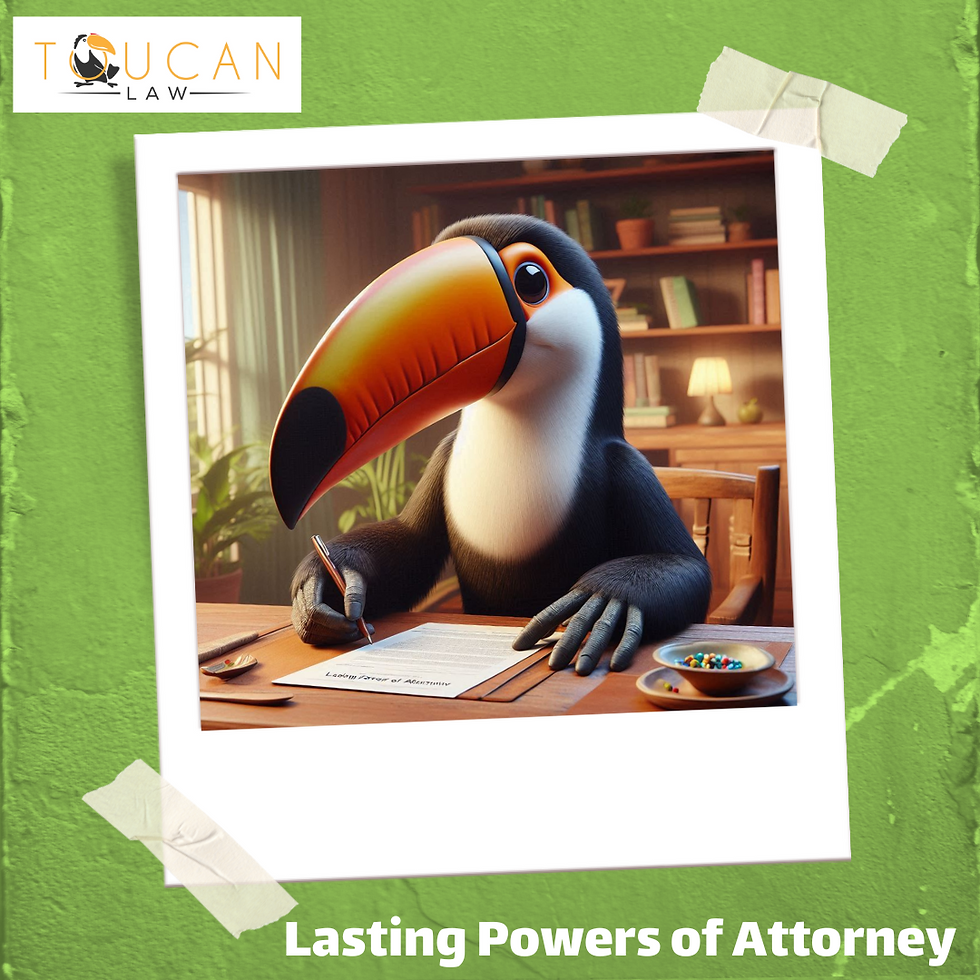
We often take steps in our lives to secure our future and the wellbeing of our loved ones; this may be through insurance policies, retirement plans and Wills however, it is equally as important to consider Lasting Powers of Attorney (LPA) as a crucial part of estate planning.
What is a Lasting Power of Attorney (LPA)?
A Lasting Power of Attorney is a legal document which allows you to appoint people you trust to act for you in circumstances where you may not be able to make decisions for yourself. This could be due to an accident, injury or an illness such as Alzheimer’s or dementia.
The person(s) you have appointed, also known as your attorney(s), can make decisions on your behalf regarding you finances, property and/or health and welfare. The types of decisions will depend on which type of LPA you have created and the wishes you have included.
It is important to make an LPA while you are still mentally capable to make decisions for yourself; once you lose capacity, it may be too late to create an LPA.
In cases where an LPA is not in place, your loved ones will be required to obtain a court order from the Court of Protection to gain access to your finances as accounts are often frozen after you lose capacity. This process can be timely and expensive.
The different types of Lasting Powers of Attorney
Property and Finance This allows your attorney(s) to manage your finances, such as paying bills or selling your home. The attorney(s) appointed under this LPA can have the power to manage the individual’s bank accounts, pay bills, collect benefits, sell property, make investments and deal with any other financial matters. This LPA does not permit the attorney(s) to make decisions regarding the individual’s health and welfare; this would require a separate Health and Welfare LPA.
Health and Welfare This LPA allows your attorney(s) to make decisions regarding medical treatments and daily care, such as where you live and what kind of care you receive. Creating a Health and Welfare LPA is important for individuals who want to ensure their wishes are respected and that they receive the kind of care they desire if they become unable to express those preferences themselves. This LPA is activated ONLY when the individual has lost capacity.
Business You can create a Business LPA which specifically deals with decisions regarding a business or commercial operation. Your appointed attorney(s) can have the power to manage business finances, enter into contracts, make investments, deal with suppliers and even make strategic decisions such as mergers and acquisitions.
The types of LPAs are independent and you may appoint different people to act as your attorney(s) under each type of LPA. An LPA can only be used once it has been registered with the Office of the Public Guardian, the current fee to do this is £82 per application.
Benefits to creating a Lasting Power of Attorney
Control and Peace of Mind
When you make an LPA, you can choose who you would want to deal with your affairs when you are no longer able to do so yourself. You can choose whether to appoint one or more attorneys and specify how joint attorneys are to make decisions. You can even appoint replacement attorney(s) to act in the event that your first choice is not able to act for any reason. You are free to appoint a family member, friend, a professional, or a combination of these. You can also include preferences or instructions within the LPA form to guide your attorneys as to how you would like them to exercise their powers.
Avoiding Legal Fees and Delays
Without an LPA in place, your loved ones will be required to obtain a court order from the Court of Protection to gain authority to manage your affairs should you be unable to. This process can be complex, time consuming and expensive.
No delays Once an LPA has been registered with the Office of the Public Guardian (OPG), it is available for use immediately so, in the event of a sudden or unexpected loss of capacity, your attorney(s) would be able to step in immediately to take over the management of your affairs and take decisions on your behalf.
Personalised Care
Health and Welfare LPAs allow you to outline your preferences with regard to medical treatment and care, including end-of-life decisions. This ensures your values and beliefs are respected and also reduces the burden on your loved ones during difficult times.
Flexibility
A property and financial affairs LPA can be used at your direction whilst you are still mentally capable. This could be useful if you are out of the country for an extended period of time or find yourself physically incapacitated but mentally capable of taking decisions. Unlike a property and financial affairs LPA, a health and welfare LPA can only be used if you are incapable of taking the relevant decision yourself.
When can I make a Lasting Power of Attorney?
Provided you are over the age of 18 and have sufficient capacity, you can make an LPA.
We recommend creating an LPA sooner rather than later, as you never know what is around the corner.



コメント